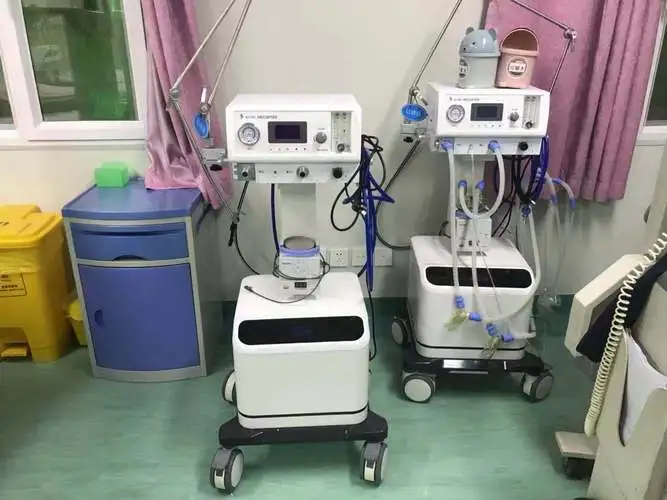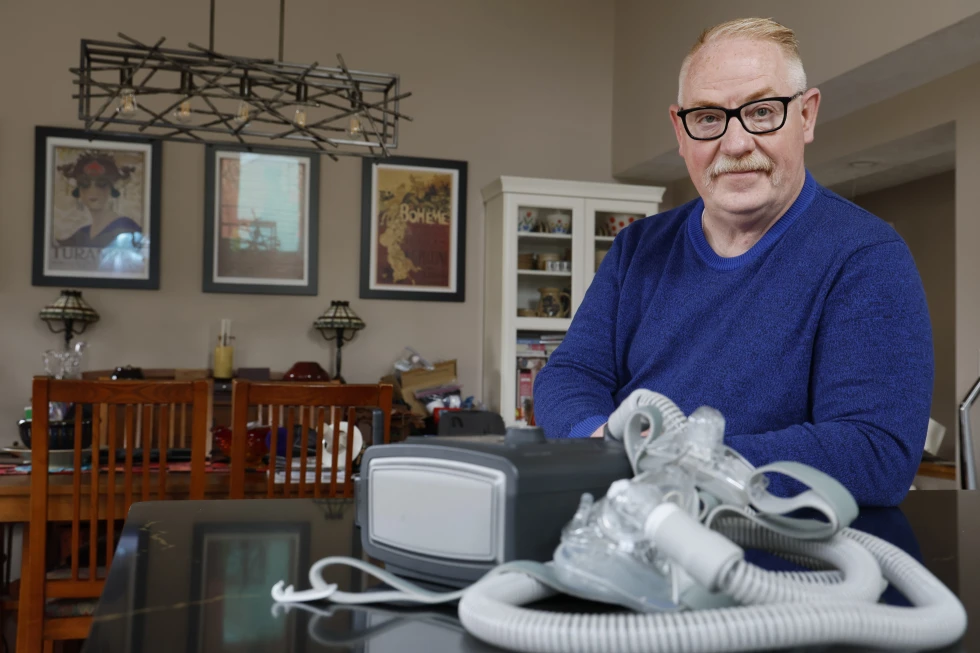The recent settlement announced by federal officials regarding the global recall of sleep apnea machines by Philips marks a significant turning point in the ongoing saga surrounding the defective devices.
The company has been mandated to adhere to a series of stringent safety requirements before it can resume production at its U.S. facilities, signifying a crucial step towards addressing one of the largest medical device recalls in history.
The U.S. Department of Justice unveiled the terms of the settlement, outlining the extensive measures that Philips must undertake to rectify the situation.
Among the key stipulations is the comprehensive overhaul of the company’s manufacturing and quality control systems.
Additionally, Philips is obligated to engage independent experts to thoroughly assess and validate the proposed changes, ensuring compliance with safety standards.
Furthermore, the company is mandated to continue the process of replacing, repairing, or refunding all U.S. customers affected by the faulty devices.
At the core of this recall are the continuous positive airway pressure (CPAP) machines, vital devices that assist individuals suffering from sleep apnea by maintaining open airways during sleep.
The defective nature of these machines, resulting from the breakdown of internal foam, poses serious health risks to users, including the inhalation of particles and fumes during sleep. The recall of over 5 million units since 2021 has underscored the urgency of addressing these safety concerns promptly and effectively.
Despite the magnitude of the recall, efforts to rectify the situation have been marred by delays, causing frustration among regulators and patients in the U.S. and other affected regions.
Allegations put forth by federal government lawyers point to Philips’ failure to uphold good manufacturing practices essential for ensuring device safety.
While the company has not admitted to these allegations, the legal proceedings have shed light on the critical need for accountability and adherence to regulatory standards within the medical device industry.
U.S. Attorney Eric Olshan emphasized the commitment of regulatory bodies to uphold public safety and hold manufacturers accountable for violations that jeopardize public health.
The legal agreement reached with Philips mandates the engagement of independent auditors to formulate a comprehensive plan for addressing manufacturing deficiencies and monitoring device-related issues.
This plan will undergo scrutiny by the Food and Drug Administration (FDA), ensuring that the proposed solutions align with established safety protocols.
Additionally, the experts tasked with overseeing these measures will be required to certify that any new foam utilized by Philips meets the stringent safety standards set by the FDA.
In conclusion, the settlement between federal officials and Philips represents a pivotal moment in the resolution of the sleep apnea machine recall.
By imposing rigorous safety requirements and oversight mechanisms, the agreement aims to restore confidence in the company’s manufacturing processes and ensure the well-being of users reliant on these critical medical devices.
As the company embarks on the journey towards compliance and rectification, the collaborative efforts of regulatory authorities and industry stakeholders will be essential in safeguarding public health and upholding the integrity of the medical device sector.
The Philips machine debacle has sent shockwaves through the medical device industry, prompting a wave of personal injury lawsuits and regulatory scrutiny.
Jeffrey Reed, a resident of Marysville, Ohio, found himself caught in the crossfire of this controversy as he battled persistent sinus infections and pneumonia while using a Philips machine for seven years.
His concerns about the long-term health implications of his prolonged exposure to the device echo the anxieties of many others who have joined the legal battle against the company.
With over 750 individuals filing personal injury lawsuits against Philips, the scale of the issue is staggering. These cases have been consolidated in a federal court in Pennsylvania, reflecting the widespread impact of the faulty devices.
The company’s attempts to address the situation, including a tentative agreement with the FDA and the Department of Justice, have been met with skepticism and uncertainty.
Despite assurances of a roadmap for regulatory compliance, doubts persist about the company’s commitment to ensuring the safety of its products.
The revelation of red flags during an FDA inspection of Philips’ Pennsylvania offices in 2021 further eroded trust in the company. Emails indicating that the company was aware of issues with its foam insulation years before the recall raised serious questions about its handling of safety concerns.
The FDA’s directive for clearer communication about the health risks associated with the devices underscored the need for greater transparency and accountability in the medical device industry.
The challenges faced by customers seeking refunds or replacements for their affected devices highlight the human toll of corporate negligence.

Reports of long delays and frustrations in dealing with Philips have added to the distress of individuals grappling with health issues linked to the faulty machines.
The regulatory interventions, while a step in the right direction, have exposed systemic failures in ensuring the safety and well-being of consumers.
As the legal battles unfold and regulatory oversight intensifies, the Philips machine controversy serves as a cautionary tale for the medical device industry.
The need for stringent quality control measures, timely recalls, and transparent communication with customers has never been more apparent.
The experiences of individuals like Jeffrey Reed underscore the profound impact that corporate negligence can have on the lives of ordinary people. It is imperative that companies prioritize the safety and welfare of their customers above all else to prevent such crises from recurring in the future.
